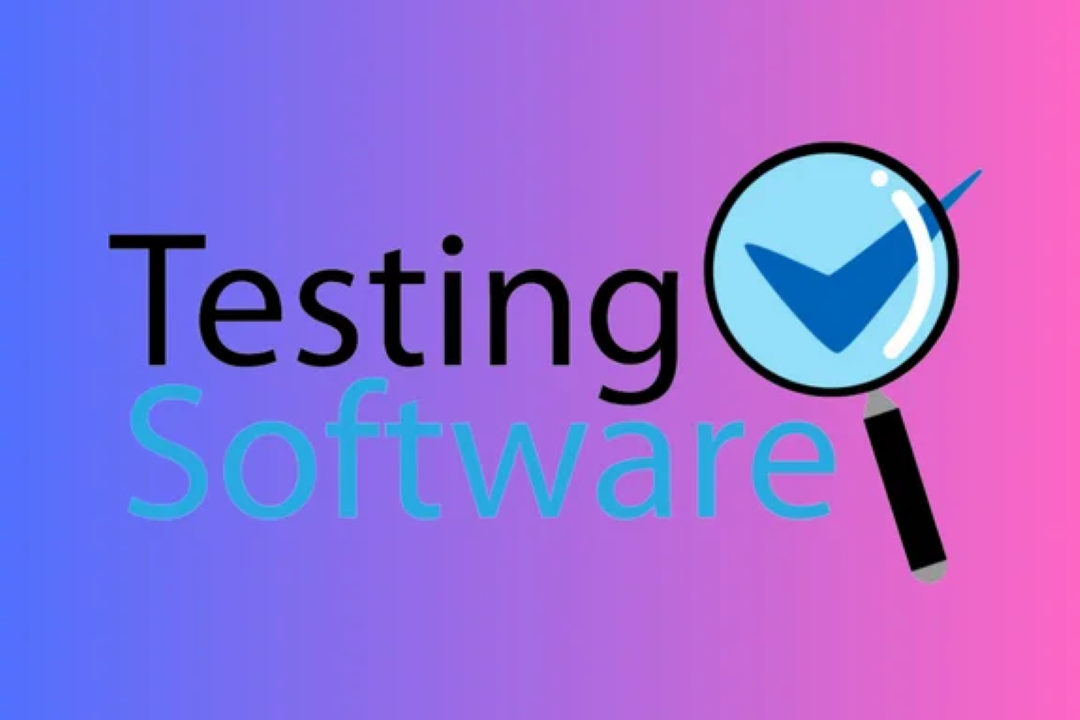APPium PYTHON FRAMEWORK GITHUB FOR ANDROID AND IOS
The Appium Python framework on GitHub is an open-source automation tool designed for testing mobile
APPium PYTHON FRAMEWORK GITHUB FOR ANDROID AND IOS
The Appium Python framework on GitHub is a powerful, open-source tool that facilitates the automation of mobile application testing for both Android and iOS platforms. It allows developers and testers to write tests in Python, a widely used language known for its readability and ease of use. This framework enables seamless interaction with mobile applications, making it possible to create end-to-end tests that ensure functionality, performance, and user experience across devices. With a robust community, extensive documentation, and support for various mobile frameworks, Appium streamlines the testing process, making it invaluable for teams looking to enhance their mobile testing strategies and ensure high-quality applications.
To Download Our Brochure: https://www.justacademy.co/download-brochure-for-free
Message us for more information: +91 9987184296
The Appium Python framework on GitHub is a powerful, open source tool that facilitates the automation of mobile application testing for both Android and iOS platforms. It allows developers and testers to write tests in Python, a widely used language known for its readability and ease of use. This framework enables seamless interaction with mobile applications, making it possible to create end to end tests that ensure functionality, performance, and user experience across devices. With a robust community, extensive documentation, and support for various mobile frameworks, Appium streamlines the testing process, making it invaluable for teams looking to enhance their mobile testing strategies and ensure high quality applications.
Course Overview
The “Appium Python Framework GitHub for Android and iOS” course provides a comprehensive introduction to using Appium for mobile application testing on both Android and iOS platforms. Participants will explore how to set up the Appium environment, utilize the Python programming language to write efficient automated tests, and leverage GitHub for version control and collaboration on testing projects. Through real-time projects, learners will gain hands-on experience in executing end-to-end test scenarios, debugging issues, and enhancing test scripts, ultimately equipping them with the skills to ensure high-quality mobile applications. This course is ideal for testers, developers, and anyone interested in mobile automation testing.
Course Description
The “Appium Python Framework GitHub for Android and iOS” course offers a detailed exploration of mobile application testing using the Appium framework combined with the Python programming language. Participants will learn how to set up their testing environment, write automated test scripts, and execute tests across both Android and iOS platforms. The course includes hands-on projects that involve real-time application testing, enabling learners to debug and enhance their test scripts effectively. Additionally, it covers the integration of GitHub for version control, fostering best practices in collaboration and project management. This course is perfect for testers and developers looking to enhance their skills in mobile automation testing.
Key Features
1 - Comprehensive Tool Coverage: Provides hands-on training with a range of industry-standard testing tools, including Selenium, JIRA, LoadRunner, and TestRail.
2) Practical Exercises: Features real-world exercises and case studies to apply tools in various testing scenarios.
3) Interactive Learning: Includes interactive sessions with industry experts for personalized feedback and guidance.
4) Detailed Tutorials: Offers extensive tutorials and documentation on tool functionalities and best practices.
5) Advanced Techniques: Covers both fundamental and advanced techniques for using testing tools effectively.
6) Data Visualization: Integrates tools for visualizing test metrics and results, enhancing data interpretation and decision-making.
7) Tool Integration: Teaches how to integrate testing tools into the software development lifecycle for streamlined workflows.
8) Project-Based Learning: Focuses on project-based learning to build practical skills and create a portfolio of completed tasks.
9) Career Support: Provides resources and support for applying learned skills to real-world job scenarios, including resume building and interview preparation.
10) Up-to-Date Content: Ensures that course materials reflect the latest industry standards and tool updates.
Benefits of taking our course
Functional Tools
1 - Appium
Appium is an open source test automation framework designed specifically for mobile applications on both Android and iOS platforms. It allows testers to write tests using their preferred programming languages, including Python. Appium supports native, hybrid, and mobile web applications, providing flexibility in testing various types of applications. Its architecture consists of a server that allows the client to interact with mobile devices, making it easy to set up and manage. The ability to run tests on real devices and emulators/simulators enhances the testing process, allowing for comprehensive and accurate validation of mobile applications.
2) Python
Python is a versatile programming language widely used in automation and testing due to its simplicity and readability. In the context of the Appium Python framework, it enables users to write elegant and concise test scripts. Python's rich set of libraries and frameworks, such as unittest and pytest, facilitate effective test case management and reporting. Additionally, Python's vast community support ensures that students can find resources, tutorials, and examples to aid their learning process. The language's popularity among automation engineers makes it a valuable skill for those pursuing a career in mobile testing.
3) GitHub
GitHub serves as a powerful platform for source code management and collaboration, making it an essential tool for students learning the Appium Python framework. Students will use GitHub to version control their test scripts and collaborate with peers on open source projects. The platform allows for easy sharing of code, enabling students to contribute to existing repositories or start their own. GitHub's issue tracking and pull request features help students understand collaborative development workflows, fostering team based work and enhancing their project management skills. Moreover, many open source Appium projects and libraries are hosted on GitHub, providing students with valuable resources for learning and experimentation.
4) Selenium WebDriver
Selenium WebDriver is a foundational component of the Appium framework, enabling interaction with web elements in mobile applications. It allows testers to perform actions like clicking buttons and filling out forms programmatically. Understanding how to leverage Selenium WebDriver within Appium is crucial for effective mobile testing. Students learn how to locate elements using various strategies, such as IDs, class names, and XPath, ensuring that they can interact with application components reliably. This knowledge is vital, as it directly impacts the robustness of the test scripts they develop.
5) JUnit/Pytest
JUnit and pytest are testing frameworks that provide essential features for writing, organizing, and running tests efficiently. While JUnit is native to Java, pytest is specifically tailored for Python, allowing for sophisticated test definitions and easier integration with Appium. Students will explore how to create test suites, execute tests, and generate reports, enhancing their testing workflow. These frameworks support assertions and fixtures, which help manage setup and teardown processes, making testing more manageable. Familiarity with these testing frameworks equips students with skills that are applicable to various testing scenarios beyond mobile applications.
6) Real Device Testing Tools
Using real device testing tools, such as BrowserStack or Sauce Labs, is an essential aspect of the training program. These platforms provide access to a wide range of real devices and operating systems, allowing students to execute their Appium tests in diverse environments. By using such tools, students can experience the challenges of device fragmentation and gain insights into how different devices respond to their applications. This practical exposure helps them identify device specific issues and ensures that the mobile applications are optimized for end users across varying hardware and software configurations, ultimately improving the quality of the products they test.
Certainly! Here are additional points that can enhance your article on the Appium Python framework course at JustAcademy:
7) Test Automation Best Practices
Understanding best practices in test automation is essential for efficient test script development. Students will learn key principles, such as the importance of maintaining clean and readable code, organizing tests logically, and the significance of reusability through functions and classes. Incorporating these practices improves collaboration, facilitates easier debugging, and enhances the overall maintainability of test suites.
8) Mobile Application Development Insights
Having a foundational knowledge of mobile application development is beneficial for students. Understanding how mobile apps are built and structured can help testers develop more effective test cases. Students will explore the lifecycle of mobile applications, key components, and architectures (such as MVC or MVVM), which will enhance their ability to identify potential testing scenarios and edge cases.
9) Continuous Integration (CI) and Continuous Deployment (CD)
Integrating test automation into CI/CD pipelines is a vital skill in modern software development. Students will learn how to configure their Appium tests to run automatically as part of the build process, using tools like Jenkins, CircleCI, or GitHub Actions. This practice ensures that tests are consistently run, feedback is provided quickly, and software quality is maintained throughout the development lifecycle.
10) Handling Network Issues and Device Limitations
Mobile testing presents unique challenges, such as variable network conditions and device limitations (battery life, memory, etc.). Students will learn strategies to simulate these scenarios in their tests, ensuring that applications perform well under various conditions. This knowledge helps testers anticipate user behavior and application performance, leading to a more robust testing process.
11 - Appium Inspector
Appium Inspector is a powerful tool that allows testers to inspect mobile elements and generate test scripts effortlessly. Students will learn how to use Appium Inspector to interact with the application's UI, identifying elements, obtaining their properties, and understanding the application's hierarchical structure. This tool simplifies the process of locating elements and writing accurate tests, enhancing efficiency.
12) Cross Platform Testing Strategies
Appium's ability to create cross platform tests is a key benefit that students will explore. They will learn strategies for writing tests that run on both Android and iOS, maximizing test coverage while minimizing effort. By leveraging platform agnostic code and understanding the nuances between different operating systems, students can ensure their testing is both effective and efficient.
13) Debugging Test Scripts
Effective debugging techniques are crucial for resolving issues in test scripts. Students will learn to utilize logging, breakpoints, and debugging tools to identify and solve problems within their tests. This skill set is valuable in ensuring that the test automation process is reliable and that tests produce accurate results.
14) Reporting and Analytics Tools
Employing reporting tools, such as Allure or ExtentReports, allows students to generate comprehensive test reports that provide insights into test execution results. They will learn how to create visually appealing reports that summarize test outcomes, pinpoint failures, and offer actionable insights. This knowledge is important for communicating test results to stakeholders effectively.
15) Source Control Best Practices
In addition to using GitHub, students will gain insights into source control best practices. They'll learn how to effectively manage branches, handle merge conflicts, and properly document code changes. These practices ensure a smooth collaboration process and help maintain code integrity, especially in team environments.
16) Future Trends in Test Automation
As technology evolves, so do testing practices. Students will have discussions around emerging trends in test automation, such as AI driven testing, test automation frameworks, and the rise of no code or low code testing solutions. Staying informed about future trends prepares students for advancements in the industry and equips them to innovate within their roles.
17) Community and Networking
Students will be encouraged to engage with the testing community through forums, social media groups, and local meetups. Building a professional network not only enhances learning but also opens opportunities for collaboration, mentorship, and career advancement. Connecting with industry professionals can provide valuable insights and resources that benefit their ongoing development.
These points can help create a comprehensive outline for your training program and underline the importance of acquiring skills in the Appium Python framework.
Browse our course links : https://www.justacademy.co/all-courses
To Join our FREE DEMO Session:
This information is sourced from JustAcademy
Contact Info:
Roshan Chaturvedi
Message us on Whatsapp:
Email id: info@justacademy.co
Best Practices For Manual Testing












